Tuesday, January 15th was the start of MARL Class X’s third session in St. Paul, MN. The session agenda promised a full docket of ag literacy, urban agriculture, capital tour, appointments with legislators and so much more. We started out the day with Sue Knott and Keri Sidle talking about the Minnesota Ag in the Classroom program. Sue and Keri talked about the importance of ag literacy in classrooms around the state, not just in urban areas, but rural areas too. More and more families are two or three generations removed from agriculture so it’s important to be sure agriculture is a part of every classroom’s lesson plan. The Minnesota Ag in the Classroom website (https://minnesota.agclassroom.org/) provides resources to conduct your own ag in the classroom sessions. Sue and Keri brought some of the activities with them and split us into small groups to try them out. One of the activities included using yarn to show the difference ingredients in a locally grown salad travel compared to the ingredients in a non-locally grown salad. Another activity included observing and tasting different varieties of apples and showing how seeds can germinate with a little water, sunlight, time and patience. After conducing these activities, I would say class X is armed with loads of ideas to take to the classroom. Sue and Keri ended the session with a challenge for all of us; conduct at least one ag in the classroom session before the end of the school year.
Following the Ag in the Classroom session, Class X had the honor of participating a sit-down discussion with Minnesota’s new Commissioner of Agriculture, Thom Petersen and Assistant Commissioner Whitney Place (Class VIII). Having a week on the job under his belt, Commissioner Petersen talked about Minnesota’s ag industry, how it is interconnected and how we need to help the next generation of farmers succeed. Ultimately, Petersen and Place’s goal for the next four years centers around enhancing Minnesotans’ quality of life by ensuring the integrity of our food supply, the health of our environment, and the strength of our agricultural economy.
Lunch, provided by East African themed Afro-Deli, got us all out of our comfort zone and trying new things. From chicken fantastic to sambusas, all the choices were amazing! Kahin Abdirahman, owner of Afro-Deli, talked to us about how he started the business in St. Paul in 2010 and had so much success, they were able to open a second location in Minneapolis shortly after. Afro-Deli takes pride in freshly made food that is prepared Halal.
After a short break, we were was broken into three groups and traveled to three different organizations around St. Paul to learn about urban agriculture. Group one visited Frogtown Farm, a certified-organic urban demonstration farm that practices a permaculture approach, creating a regenerative system that builds soil rather than degrading it. Group two visited The Good Acre, a nonprofit whose mission is to improve the local food system for diverse, independent farmers and to increase access to healthy produce for all consumers regardless of income. Group three traveled to Hmong American Farmer Association, where we learned that Hmong American farmers make up over half of all producers at farmers markets located in the Twin Cities’ metropolitan area. The HAFA helps farmers get access to numerous bi-cultural and bi-lingual trainings so that they can be better land stewards. All three locations gave us a unique look into the many ways’ organizations within the metro area helping urban agriculture.
Our dinner was sponsored by Agriculture Utilization Research, at the Peking Garden, a locally owned and operated full service Chinese restaurant. Before enjoying a full cuisine of a wide variety of authentic dishes, we learned about the feedforward process. Feedback is a significant part of our lives and the feedforward process helped us thinking differently about it. Instead of looking back at errors or things that cannot be changed, we learned to instead focuses on how to adapt behaviors or actions to better the future. We tested this form of feedback on each other as we talked about our media interviews from session 2 and how we would like to improve our public speaking skills.
And if that wasn’t enough, we had one more stop. To finish up the day, we were treated to a late-night tour of the capital. Brian Pease from the Minnesota Historical Society showed us around the capital, talked about how influential architect Cass Gilbert focused on the details of every room within the building, especially the unsupported marble dome, which is the second largest in the world. The capital underwent a major four-year, $310 million restoration which was completed in 2017. The project helped restore 150 years of aging from the capital’s architecture, paintings and statues. Following the tour, Representatives Paul Torkelson, Jeanne Poppe and Paul Anderson as well as MN Farm Bureau’s Public Policy associate director Josie Lonetti, spent some time with us, talking about the life of a representative, expectations of the job and how to manage the work-life balance. They gave us insights into how strenuous the job can be, why they chose to be a representative and how rewarding it can be.
Even though it was a long day, it was well worth it, and I think every member of Class X would agree. The days that followed were just as jam packed and fulfilling. As the week went on, our bond became stronger and deeper and we are all looking forward to spending even more time together in Washington D.C. in February!
Submitted by Stephanie Loch, Class X
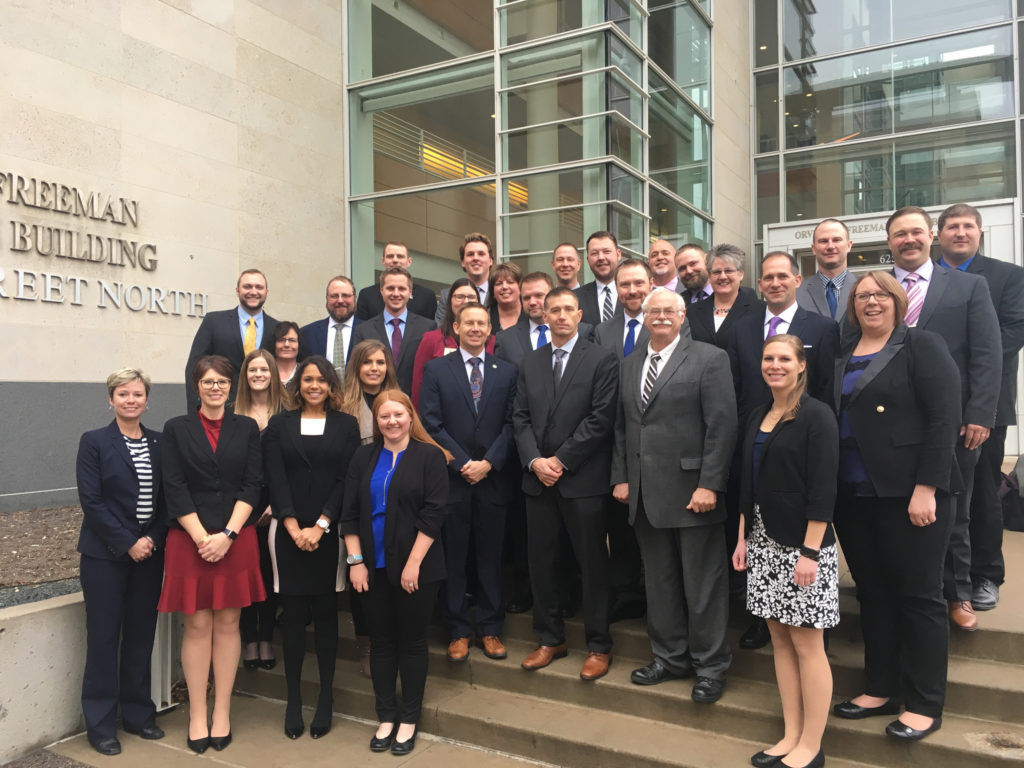
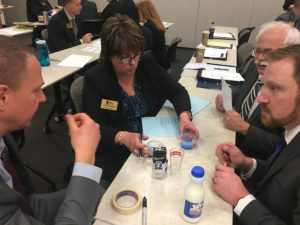
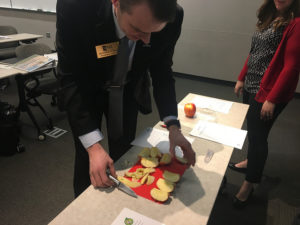
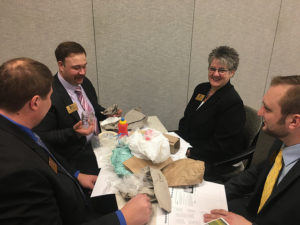
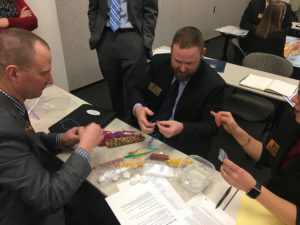
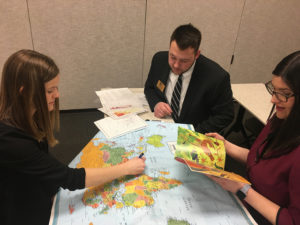
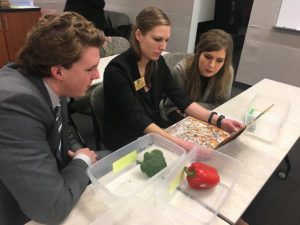
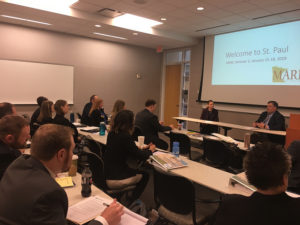
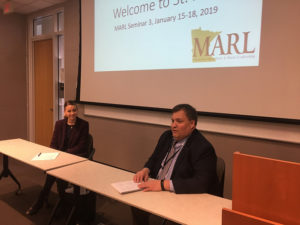
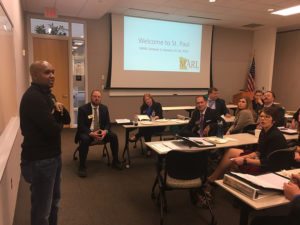
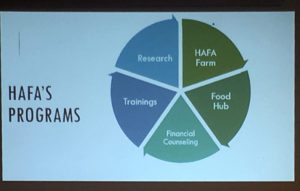
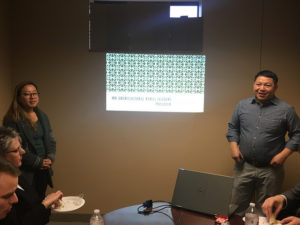
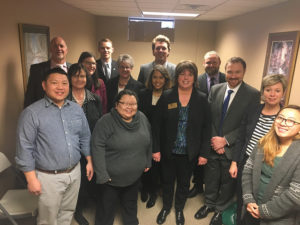
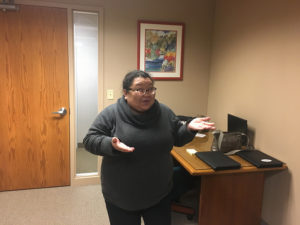
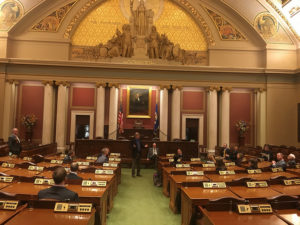
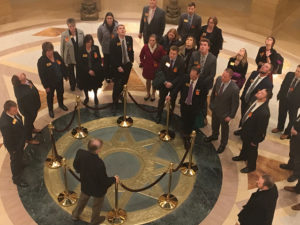
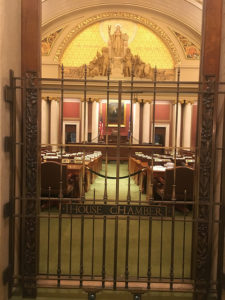
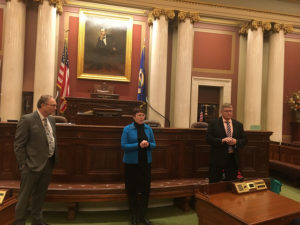
Comments